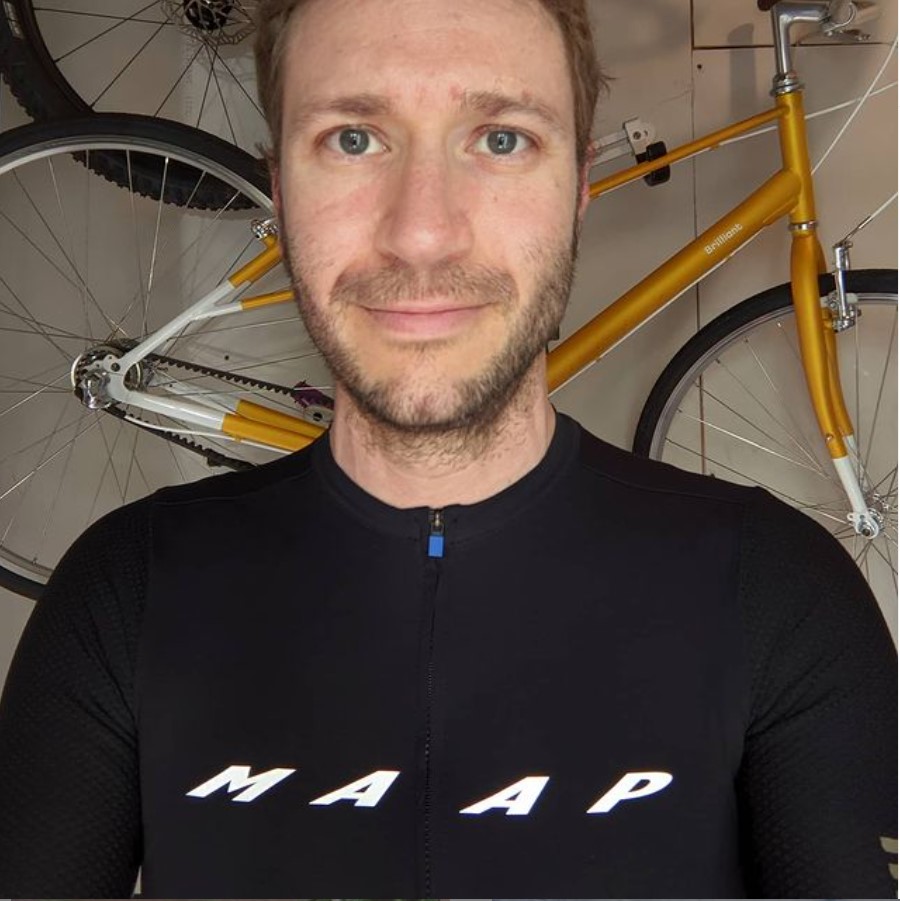Best bikepacking saddles – top-rated saddles for multi-day adventures
The best bikepacking saddles perfect for the long back-to-back days that bikepacking demands
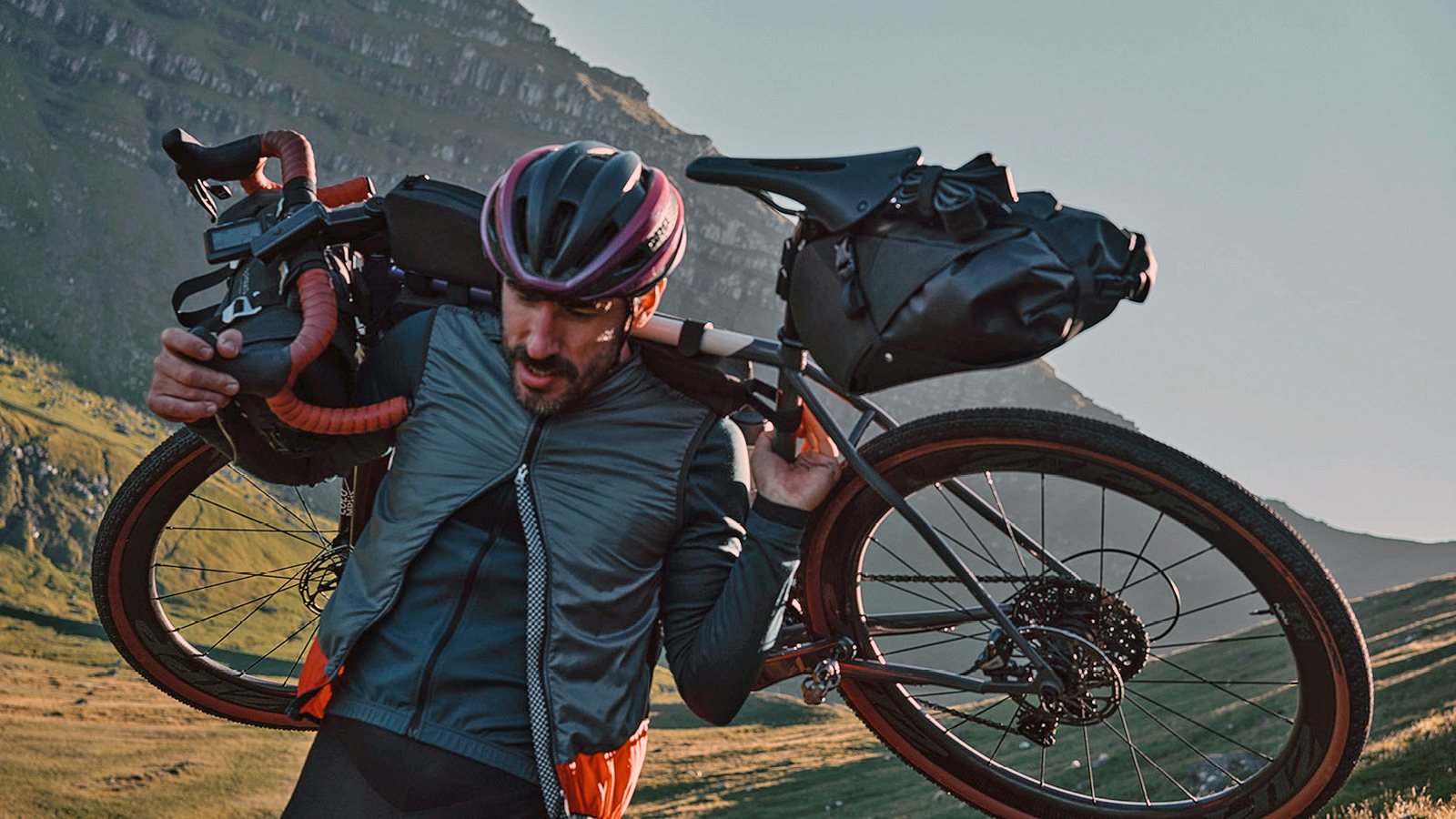
The best bikepacking saddles are often overlooked in favour of other carbon-fibre-clad components, but they're without a doubt one of the biggest upgrades you can make - especially if you plan on spending long periods of time on the bike.
The best MTB saddle for comfort is one of those things people are constantly searching for, and it's the same for a bikepacking saddle. However, the truth is every person is unique and there are lots of different needs depending on the kind of cycling and the kind of bike involved.
Thinking about what kind of saddle is best for bikepacking comes down to thinking about what bikepacking is. Bikepacking is endurance cycling at the heart of it. For some people, bikepacking will be racing and for others, it will be relaxing. No matter what, it's going to involve multiple days and probably long ones, at that.
Carrying a heavy load slows you down. Even if the miles covered aren't huge, expect to spend time on your bike and do it again the next day. When thinking about bikepacking you need to consider a comfortable saddle option. An ultra-aggressive race-focused saddle probably isn't going to be your friend here.
There are also bike considerations to keep in mind; most bikepacking-friendly bikes are going to be endurance-focused as well. Endurance-focused bikes tend to have less reach and more stack, putting you in a more upright position with more weight on your sit bones. This is another reason to consider a different saddle than you might use for a different bike, or type of cycling.
To help you narrow down your choices, here are some of the best bikepacking saddles around, or jump ahead to our guide on everything you need to know about bikepacking saddles.
Best bikepacking saddles
Why trust BikePerfect
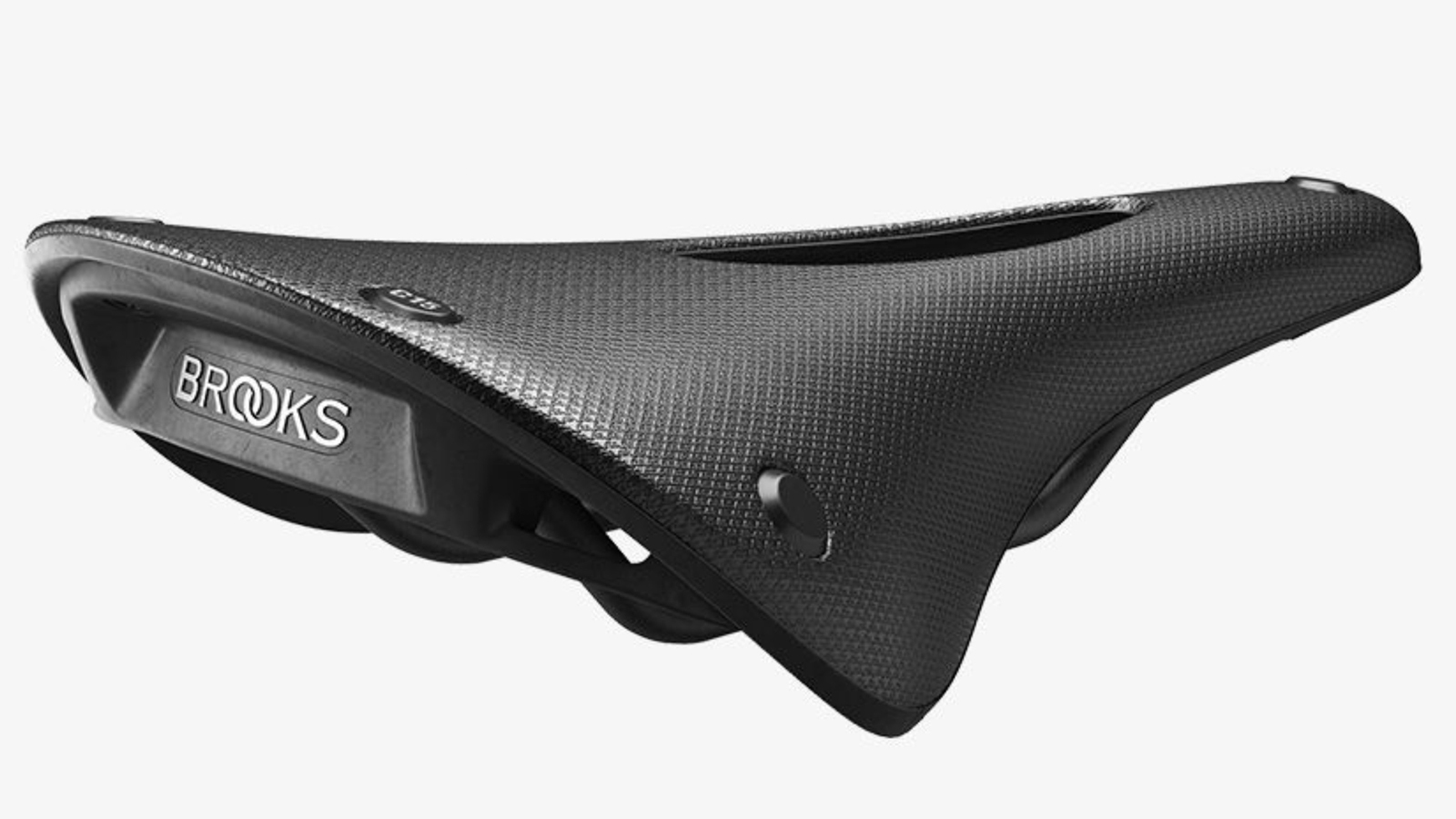
Brooks Cambium C15 Carved
Specifications
Reasons to buy
Reasons to avoid
There's a certain mystique about Brooks saddles. They are just one of those brands that seem to show up on the bikes of the coolest people. Unfortunately, the traditional leather construction of Brooks saddles isn't suited to off-road riding. The Cambium C15 is an answer to that need.
The construction of the Brook Cambium C15 is different from most of what's out there. Instead of a shell with padding and a cover there's a frame covered with a thick piece of rubber. The unsupported nature of the rubber provides all the necessary shock absorption with more durability.
The recently updated C15 Carved adds a few features that are perfect for bikepacking. At the rear of the shell you will find a fiberglass plate with extra attachment points. Then the nature of the carved version, with a center cutout, means less structure and extra flexibility. That extra flexibility and reduced pressure spots makes the C15 carved a great choice for long days in the saddle.
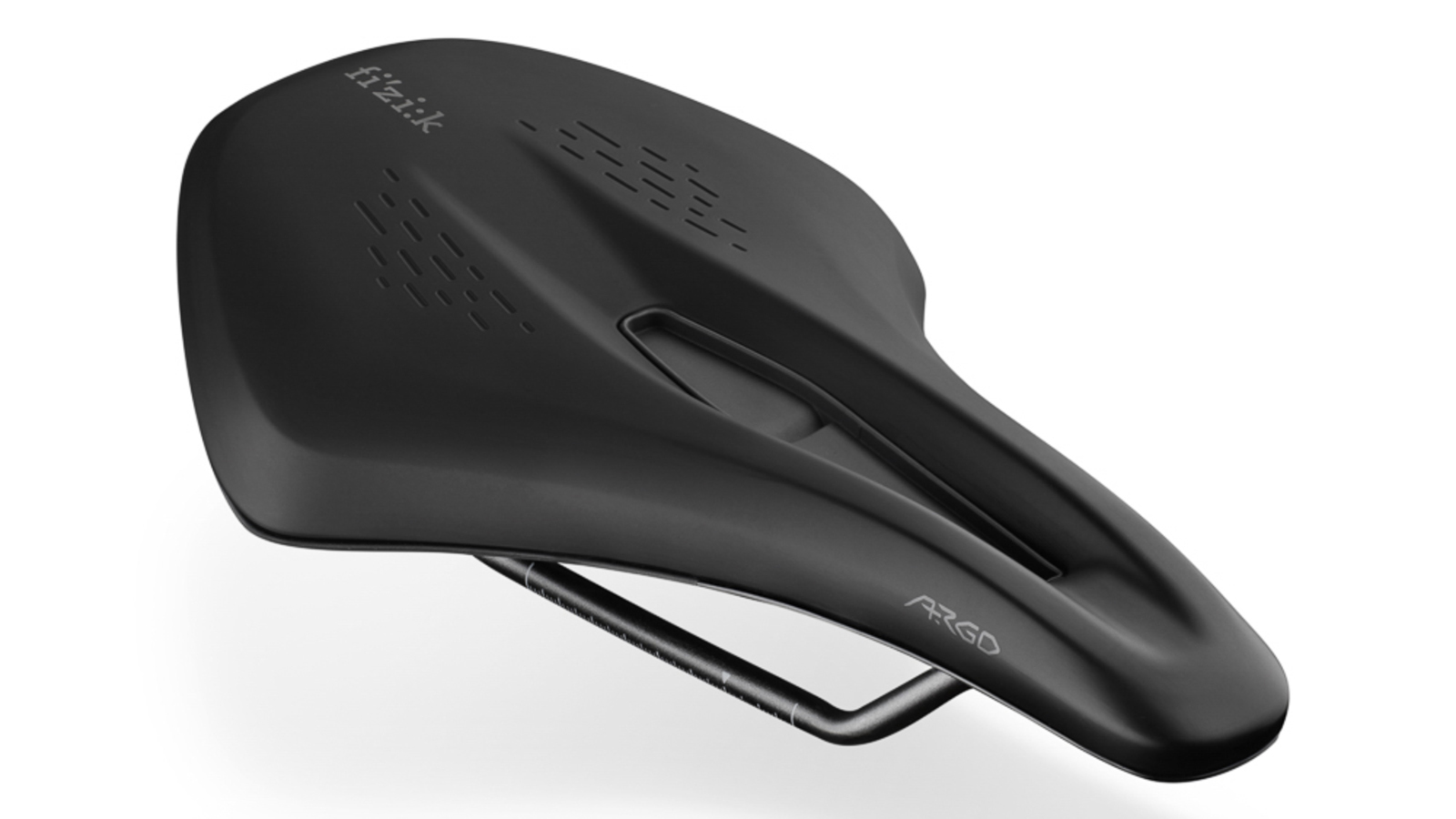
Fizik Terra Argo X3
Specifications
Reasons to buy
Reasons to avoid
With a short nose and wide rear, the Argo x3 helps keep the rider planted. Bikepacking makes it likely you will find yourself pretty planted anyway, so embrace it.
Instead of shifting around for better leverage, a saddle like the Terra Argo x3 helps keep you comfortable without needing to move as much. There is a cut-out in the design but with an understanding that cut-outs have extra considerations with off-road riding. Riding through wet, muddy, terrain with a cut-out can leave you wet and uncomfortable for the rest of the day. Fizik adds a splash guard to the Terra Argo X3 to address this issue.
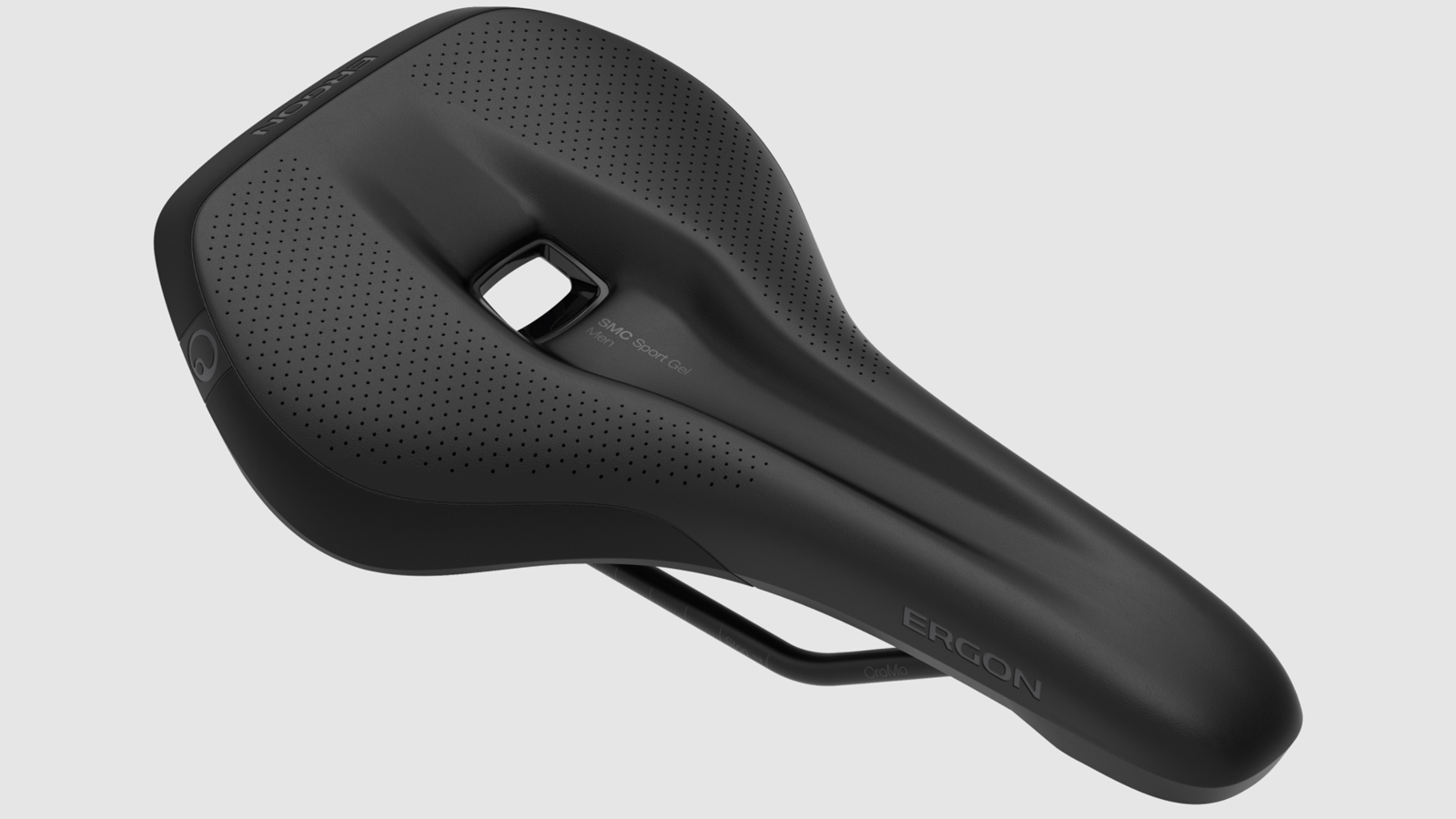
Ergon SMC Sport Gel
Specifications
Reasons to buy
Reasons to avoid
Ergon is a brand well known for making top quality mountain bike saddles. The Ergon SMC Sport Gel is a nice wide option that will work well for the most upright bike you are likely to use for bikepacking. The transition between the narrow front of the saddle and the wide center rear is tight for a quick change. You get more room to pedal without running into issues with chafing. At the rear of the saddle is an upturn to help keep you planted in the comfort optimized area with gel inserts. The addition of a removable, integrated, Topeak saddle bag mount is a nice extra bonus.
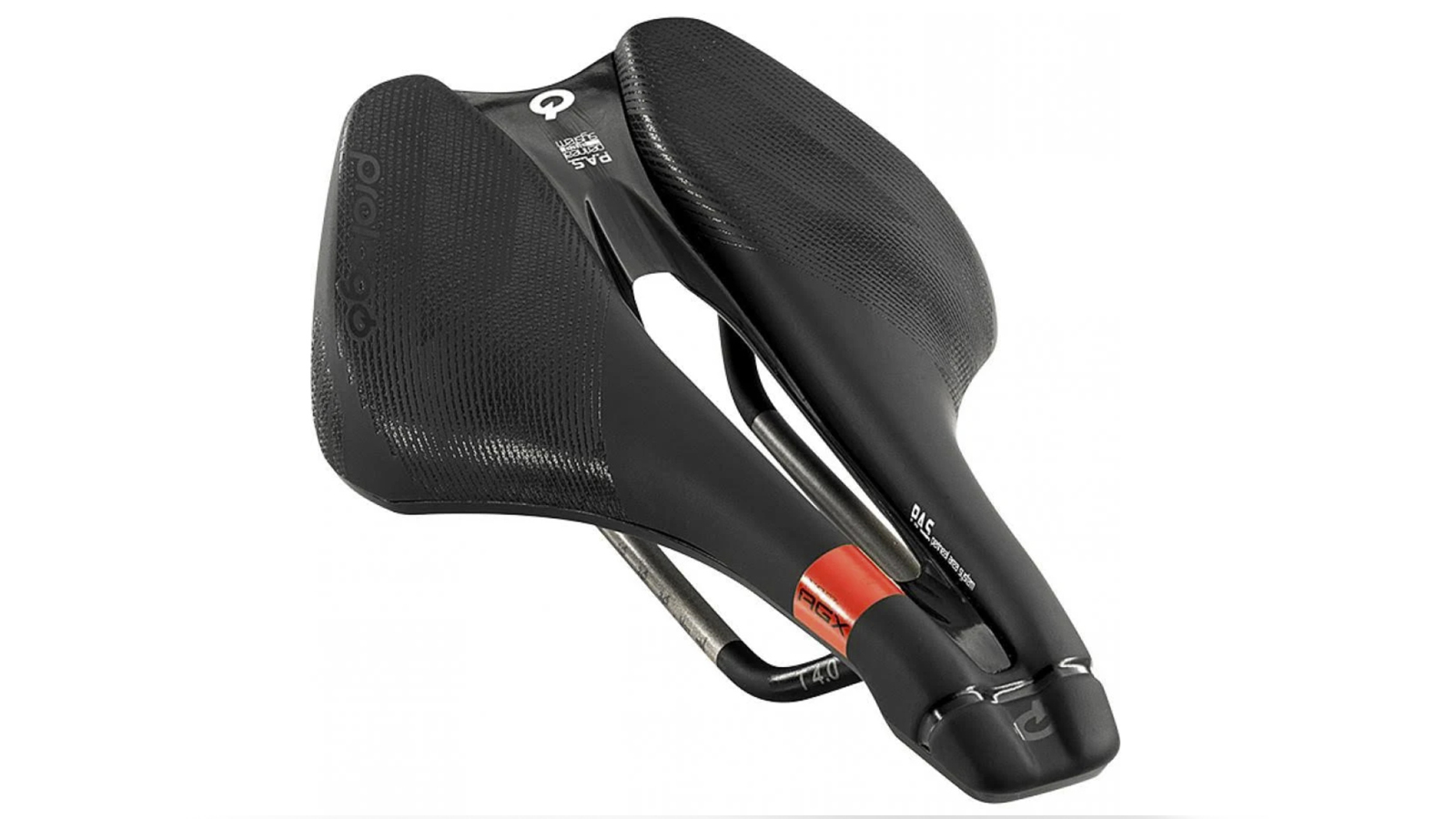
Prologo Dimension AGX
Specifications
Reasons to buy
Reasons to avoid
Lots of well-known brands are venturing into the world of off-road riding. Prologo is a brand that is well steeped in the traditional road cycling race world. Now, through a partnership with the Education First team it is stepping out of that mold.
The result is the AGX line, or Adventure, Gravel, and CX. These saddles take on silhouettes of the existing products but add thicker foam, more flexible bases, and raised graphics with extra grip. The Dimension is the short nose option and it features a pressure relief channel as well as a V shape that favors a forward position on the bike.
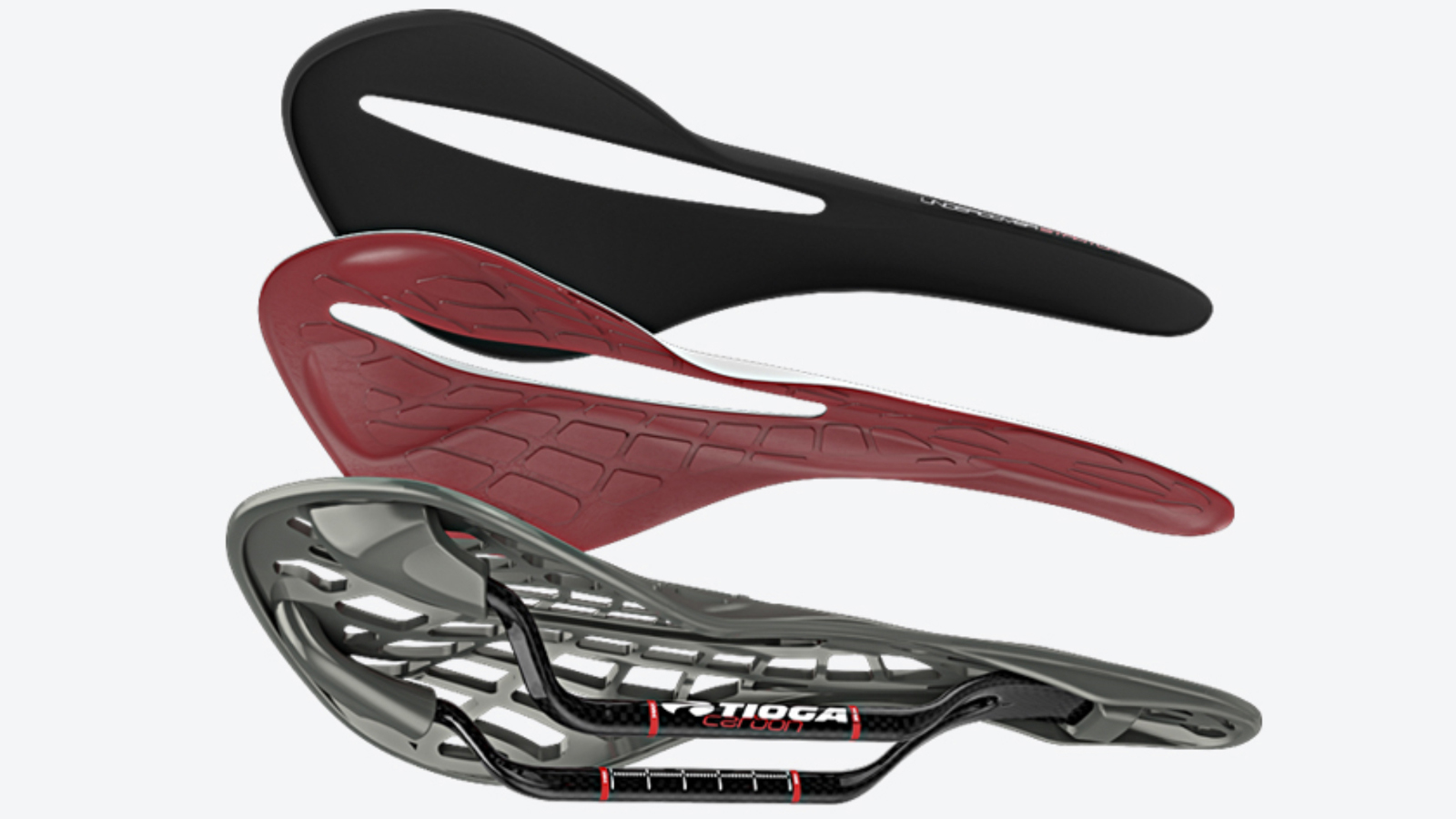
Tioga Undercover Stratum
Specifications
Reasons to buy
Reasons to avoid
The Tioga Undercover Stratum takes the thinking behind the more unconventional Stratum Spyder and aims to make it a little less extreme.
Where the Spyder forwent all padding in favor of a flexible plastic wide mesh construction, resulting in a comfortable ride despite its radical look, the Tioga Undercover Stratum features an additional cover that eases transitions and makes it easier to move around without adding much weight.
The flexible base is still there, and still doing the heavy lifting, but now there is a cover that you can slide around as necessary.
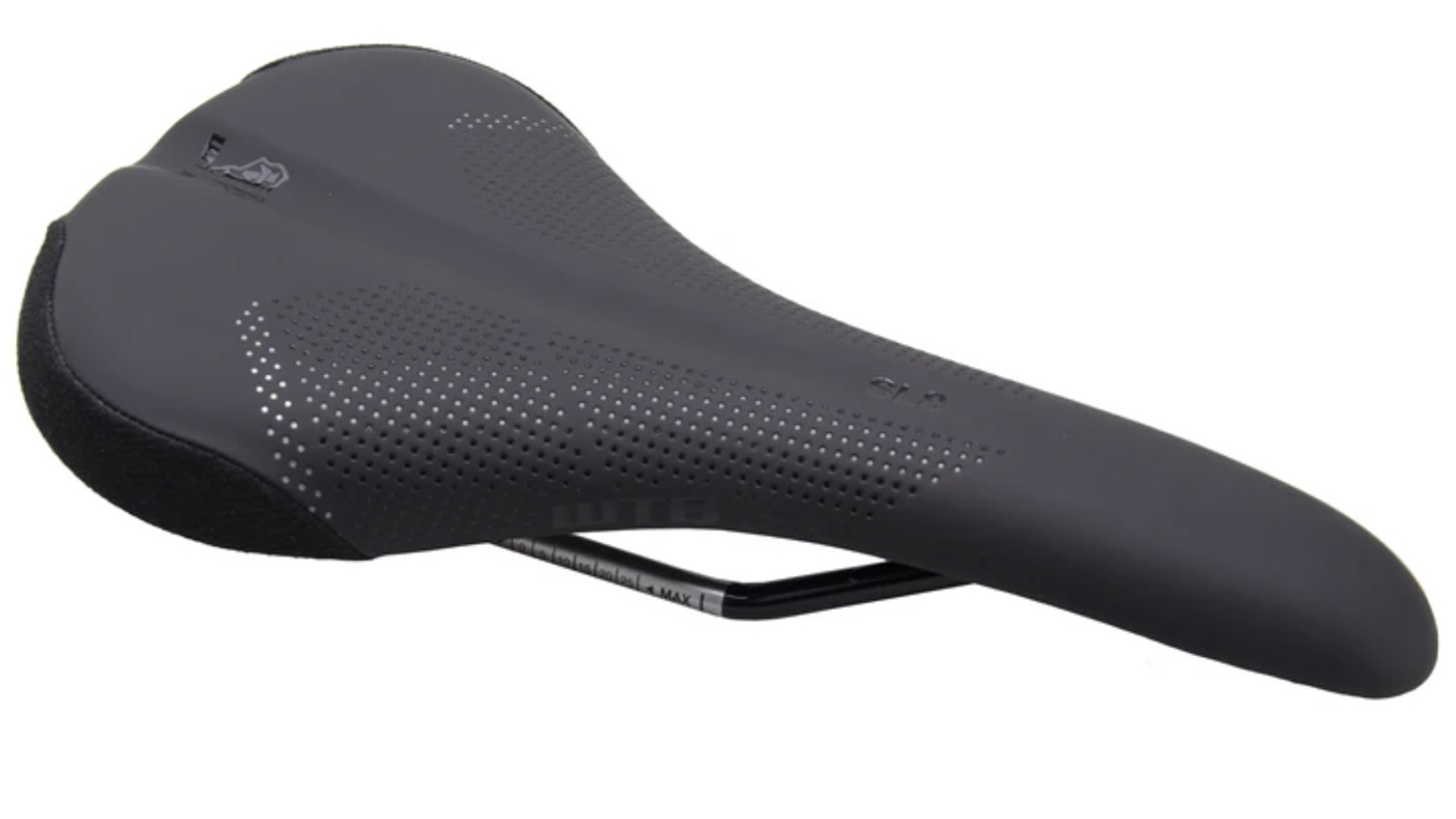
WTB SL8 Team
Specifications
Reasons to buy
Reasons to avoid
One of the most challenging aspects of choosing a saddle is getting the width correct. Seemingly every brand has a different take on what you need and how to measure it. Some are easy to measure at home and some aren't.
WTB once again has a unique take on sizing but it couldn't be easier. Measure your waist and answer a few questions, and it assures you that you will land on the size you need. The SL8 (pronounced Slate) is a thin padding option originally aimed at cyclocross racing. It's a good choice if you like a lightweight saddle that is easy to move around on.
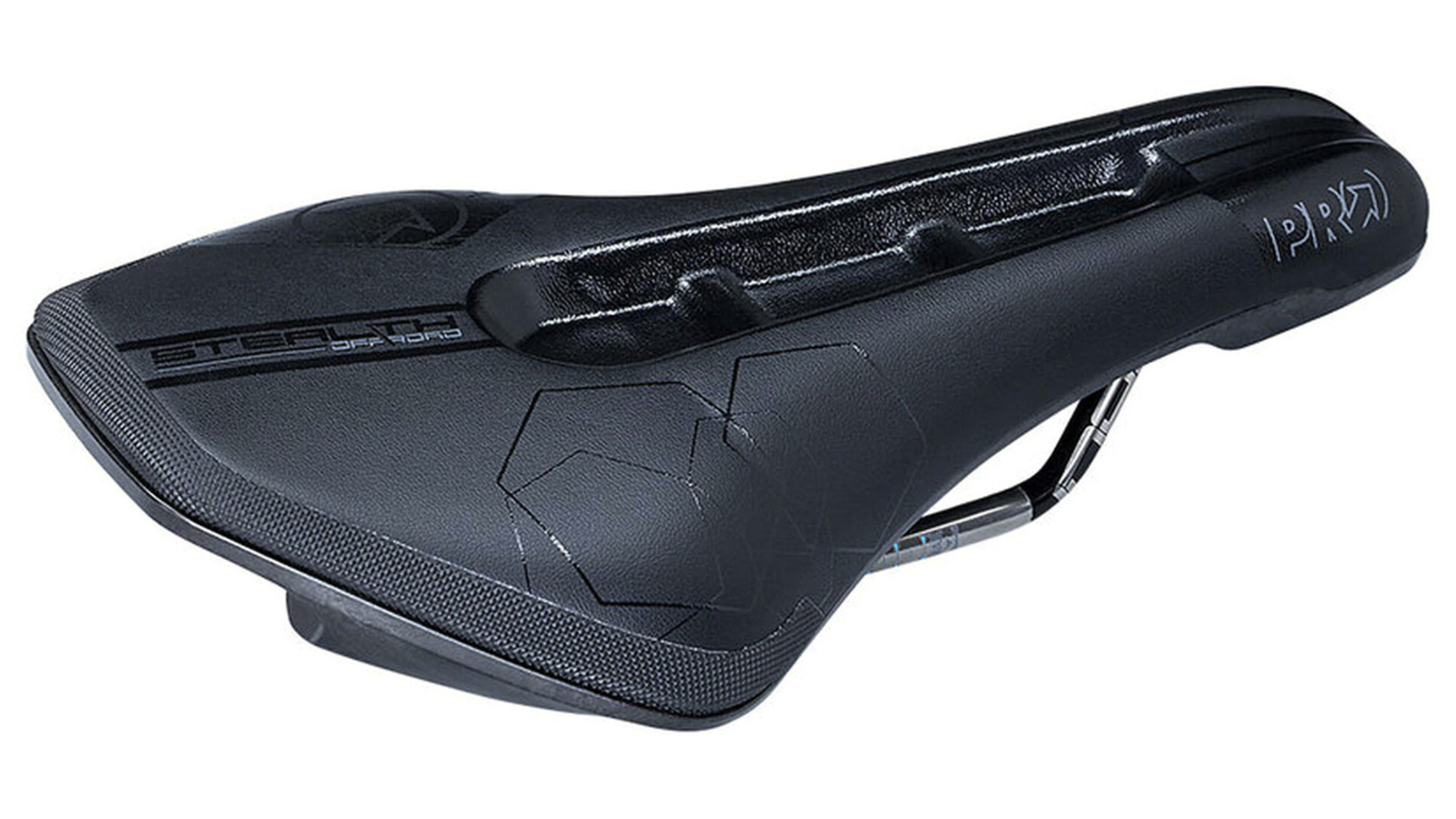
Pro Stealth Off-road
Specifications
Reasons to buy
Reasons to avoid
Pro is the Shimano accessory brand, and if you haven't considered it before it's time to start. Since Shimano is one of the biggest bike brands in the world, it has great distribution and excellent pricing. Wherever you are it's likely you can find a local shop where you can touch the Shimano Pro Off-Road saddle before taking it home.
Whether you end up doing that or not, what you are getting is an adaptation of an on-road design. It's a design that definitely favors the fast and light style of bikepacking but if that's what you like, then Pro offers a good option. The padding isn't plush but it's thicker than the road version and the stainless steel rails are more durable.
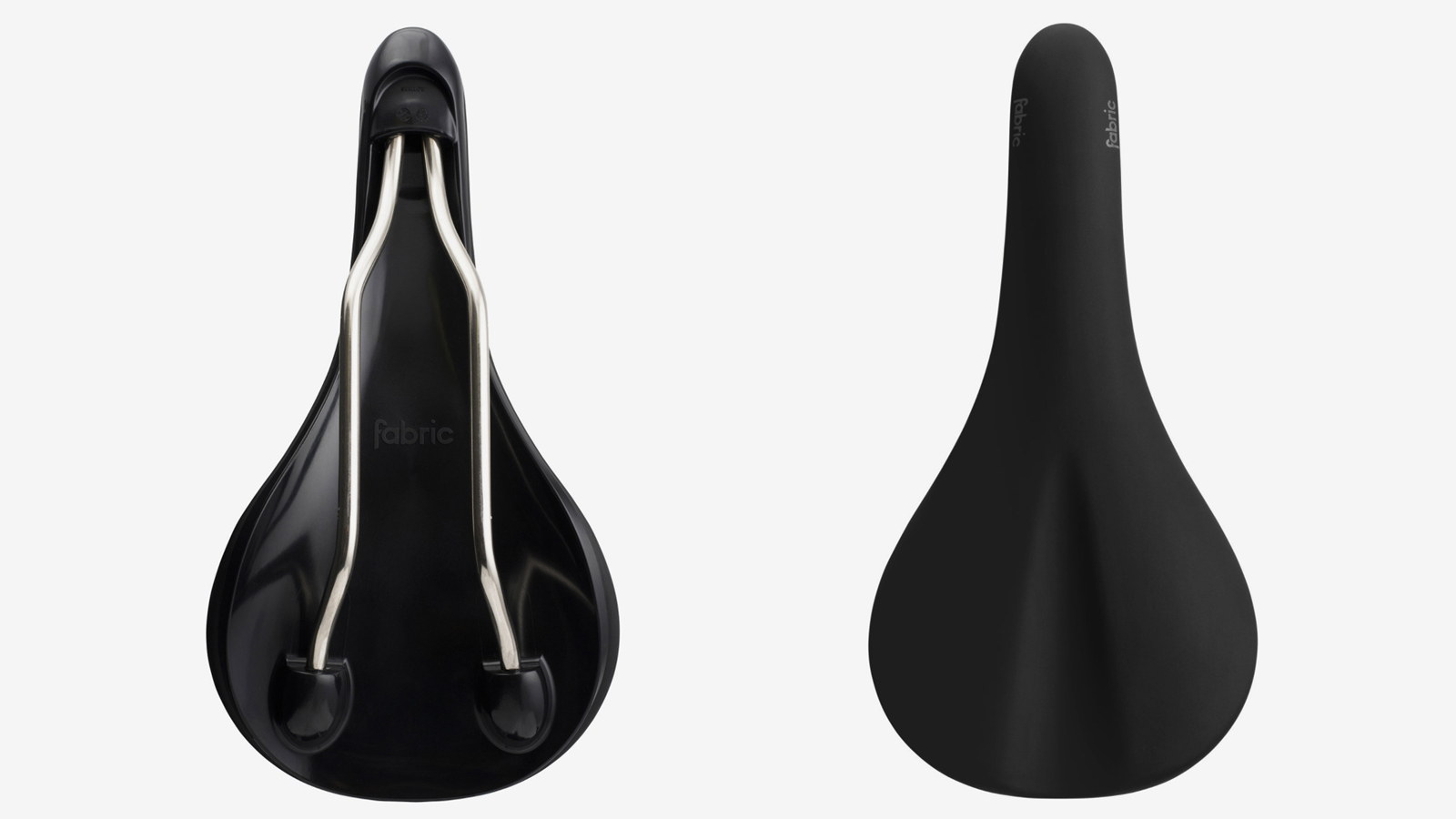
Fabric Scoop Shallow Race
Specifications
Reasons to buy
Reasons to avoid
Don't be afraid of the word 'race' in the Fabric Scoop Shallow Race saddle. This is an all-around saddle that fits well with a lot of bikepacking setups. The rear section is a rounded design and padding is medium. It's for riders who lean forward but not into a super low race position.
It has a slightly curved profile, flexible base, and low-density foam padding and it's that flexible base that really stands out. Instead of tightly stretching the top over the base, the cover and padding sit on the base without stretching. This allows the bulk of what makes you comfortable to come from the flex in the shell. The shell is perfectly engineered so that you get just enough flex for comfort.
Best bikepacking saddles: everything you need to know
1. Size your saddle to your bikepacking position
On another bike, you might run a different saddle. What you run on the mountain bike where you spend a large portion of the ride standing up, will be vastly different from the saddle on an aggressive road bike where you spend a few hours at a time riding hard. Move either of those saddles to your bikepacking bike and it might not do what you need it to.
In most bikepacking situations you are much more upright, so you shift your weight backward. That distributes your weight over a larger part of your body and requires a wider saddle. Your actual sit bones obviously don't change, but the area that interacts with the saddle is greater and you might need support for a wider area.
None of this is an exact science. What is important to consider is that bikepacking is different. A saddle that works in one situation might not work for bikepacking. Most importantly, make sure you test things before committing to a long trip.
2. Remember to Stand
One of the more unique aspects of bikepacking, as it relates to saddle choice, is a static riding position. A loaded bike feels a lot different than a bike would without the extra weight. Not only does it feel different just riding along but as the bike leans the extra weight up top acts as a lever. Small movements feel exaggerated, so it's easy to settle into a position that feels stable and stay there for a very long time. Instead of standing and moving around regularly your position on the bike becomes very static.
A static position exaggerates any bike fit issues. A small issue in one part of your fit might not ever become noticeable in normal riding. Spend 10 hours on the bike with a barely changing position and all a sudden it's a much bigger problem. Of course, you want to work hard to fix things but also, make sure you move around.
The best way to make sure you move around is to familiarise yourself with the way your loaded bike feels first. The only way to get experience is to practice. Load everything up and take the bike for short trips. Stand up and move around on the bike until you feel good about doing it without much thought.
The practice runs are also a good opportunity to further optimize your setup. Move as much weight as you can down low for better balance. Make sure there isn't anything blocking your hands on the bars and make sure you can access your water while riding.
3. Don’t go too soft
This probably isn't the first time you've heard it but too soft of a saddle is not the solution. There's a lot of focus on staying comfortable for long days in a bikepacking situation. Remember that the solution is not an overly soft saddle.
All that extra padding on a soft saddle won't feel any better in the long run. The padding compresses and puts pressure where you don't want it. An extra soft saddle is also likely a bulky saddle. Although you might need a wider saddle to match the upright position on a bikepacking bike you still want to avoid bulkiness. A bulky saddle will cause as much discomfort as a narrow saddle. The point is to go just wide enough and not any wider.
Josh Ross was our US tech writer. He's most happy when talking about the finer details of how bicycle parts and components work, and enjoys putting his thoughts to words. He is a road cyclist at heart but can often be found taking the gravel road less traveled. Although he rarely races these days, he still enjoys a good Zwift session and race but will always choose the real world over pixels.
Height: 5'9"
Weight: 137 lb.
